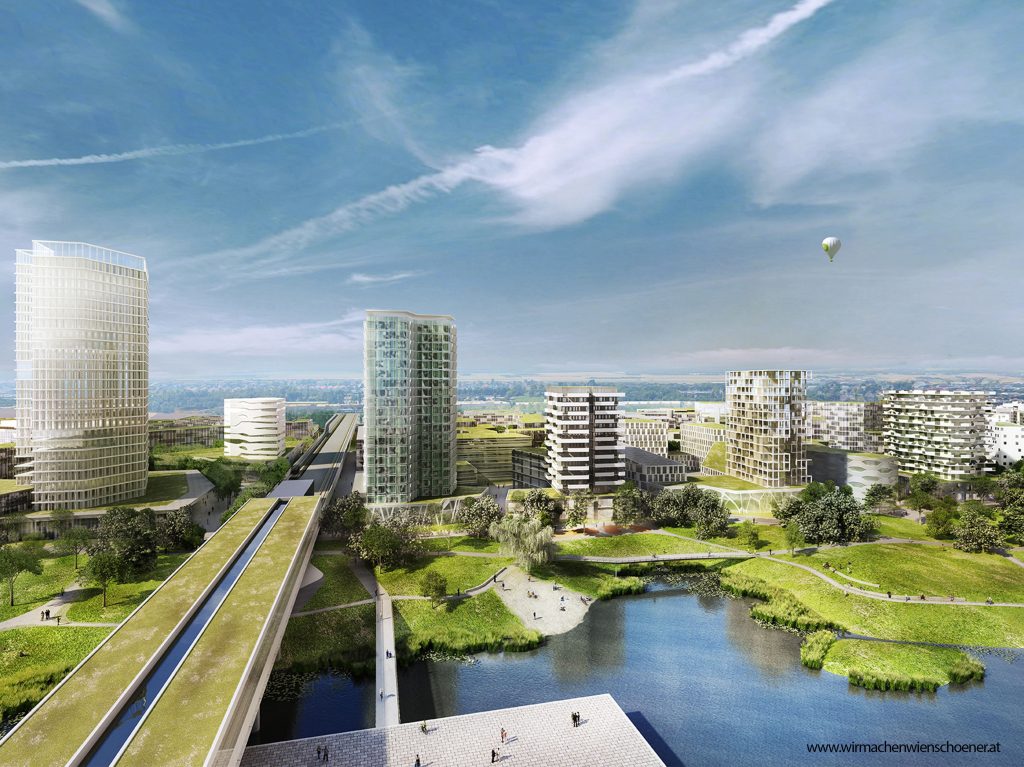The Transport Research Arena is an international conference hosting over 3000 experts in the fields of science, industry and politics.
Diverse Topics ranging from future electromobility to self-driving cars and efficient sharing concepts were explored in over 100 sessions.
Various interesting projects related to the research focus of MobINE were presented and discussed. One such project estimated the potential car-traffic reduction of a cable car in the city of Graz (Fabian Dorner, TU Wien). Whereas Dr. Anna Pernestal from KTH presented the adoption rate of a carsharing app in commuting. During the course of the conference, Dr. Merja Hoppe presented a poster about the key findings of the METPEX project.
In addition to general networking and poster presentation, MobINE had the opportunity to get a private tour to the Seestadt Aspern, guided by Dr. Martin Berger and Christoph Kirchberger from the aspern mobil LAB.
Seestadt Aspern integrates various aspects of a sharing economy and sustainable modes for transportation, creating a hub for a pioneer smart city. It Features participatory projects such as co-working spaces, shared facilities or real-life mobility Research. Further efforts are given to green parcel delivery, (Cargo)bike-sharing stations and an attractive integration of recreation and playing fields into the city streets. For more information about the smart city Seestadt Aspern visit: www.aspern-seestadt.at
A tangible game to understand the importance of networks and cause & effect relationships in mobility decisions?
MobINE further met Martina Jauschneg in Vienna where we got the opportunity to play the so-called Mobility Safari serious game. It is a project within the Joint Programming Initiative (JPI) Urban Europe together with Play!UC, Green City Lab, University of Groningen and FH Hagenberg.
Players move their playing figure on the game board by rolling a dice and start or join mobility initiatives, develop new services and implement different Projects. In doing so, they collect coins (financial aspect), community points (social aspect) and CO2-reduction-points (environmental aspect).
Main targets of the board game:
- Awareness rising among various actor groups
- Informing these actor groups about what resources are needed for green mobility and sharing projects
- Support networking and trust building to set up sharing initiatives and citizen collectives
- Inform citizens on existing initiatives
- Support and integrate underrepresented groups
MobINE is planning to alter the game to a regional Swiss context together with Martina Jauschneg as external consultant. Stay tuned for future updates!


